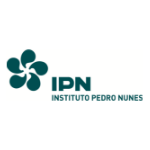Tackling antimicrobial resistance using Artificial Intelligence and Big Data to transform antibiotic prescription
Abtrace will use artificial intelligence techniques to provide doctors with the information they need to pick the correct antibiotic and dosage for every patient and every prescription. The innovation promises better treatment for patients, reduced financial costs of consuming the wrong antibiotics and, ultimately, a reduction in drug-resistant superbugs.
Origins
Scientists have recognised that a major cause of mutant, drug-resistant bacteria is the overuse, and misuse, of antibiotics. With artificial intelligence that assists in decision making, Abtrace will ensure that doctors are “selecting the right drug for the right bug” and giving the correct dosage in every individual case they treat – thereby helping prevent the mutations that lead to deadly superbugs.
Team
Brought together through the EIT Health Wild Card 2018 process, the team competed with others for support. The founders are:
- Dr. Umar Naeem Ahmad, a frontline clinician.
- Helder Soares a medicinal chemist developing novel compounds.
- Dr. Cristina Correia, a biomedical engineer working on the interface of research and industry.
- The Instituto Pedro Nunes, in Coimbra, an EIT Health Associate Partner, was chosen through the Wild Card programme as the incubator to house this project.
The project
Abtrace will create and implement a solution by which antibiotic usage is analysed, tracked and tailored. Based on AI analysis that looks at data on dosages and success rates in treating infections with antibiotics, Abtrace’s innovation will empower clinicians with the benefit of collective medical experience, so that they can make the best treatment decisions for patients. The system helps doctors choose the right medicine in the right dosage, instantly. This means it prevents the kind of over-prescription or improper prescription that can increase the development of resistant strains of bacteria through mutation.
Ideally, the Abtrace innovation will usher in an improvement in routine practice, so that all antibiotic usage is analysed, tracked and tailored, and clinicians are empowered with the benefit of collective medical experience to make the correct treatment decisions for patients. This approach not only promises better use of antibiotics, but can bring in a wider transformation in the way medicine is practiced and understood.
As an EIT Health Wild Card Project, EIT Health and its Partners determined the challenge this project would address. The team was tasked with establishing a start-up and receives mentoring and financial support of up to €2 million to help make commercialise their innovation.
Impact
Because it will ensure that doctors give the right amount of the appropriate drug, the Abtrace solution will help patients by improving their treatment. The solution will also help payers, by reducing unnecessary treatment. The ultimate beneficiaries of better use of antibiotics is almost everyone, as this approach can help to prevent the development of deadly, drug-resistant superbugs.
Why this is an EIT Health project
This project addresses the 2018 EIT Health Wild Card Challenge of “Fight Back”, which sought projects that aim to address antimicrobial resistance. EIT Health designed this project through the creation of teams, training, competitive selection and choice of incubator. The project is also in keeping with the EIT Health Focus Areas of “Care Pathways”, because it uses innovation to improve treatment, and “Real World Data”, because it uses previous patients and treatments to inform decisions about new prescriptions.
We think there is a positive environment and growing momentum which makes this the right time to tackle this problem head on. We are confident we can deliver a solution which has both a viable business case and health impact.
Abtrace Founders
Partners

CLC/InnoStars: InnoStars
Partner classification: Tech Transfer, Clusters, Other NGOs
Partner type: Associate Partner
The Instituto Pedro Nunes (IPN) is a non-profit private organization, which promotes innovation and the transfer of technology, establishing the interface between the scientific and technological environment and the production sector. Created in 1991 through an initiative of the University of Coimbra, IPN has currently a team of almost 100 permanent staff to support start-ups and researchers in these activities. With a self-sustained business model that gives the flexibility and capacity to accompany business sector needs, IPN operates in three complementary areas: Highly specialized training, Research and technological development, and Incubation and acceleration of technology-based enterprises. In terms of applied research and technological development, IPN’s technological infrastructure includes a set of six laboratories in diversified technological areas which, along with its established connections with higher education institutions, R&TD organizations and both national and international companies, place IPN in a privileged position for jointly conducting R&TD activities with enterprises. As for the incubation and acceleration of technology-based enterprises, IPN assists start-ups with technical guidance in the establishment and early stages of business development, tutorial follow-up for developing business plans, support for attracting investment and securing funding, intellectual property and legal assistance (e.g. technology transfer contracts and the registration of patents or brands), access to and contact with various national and international research centres, knowledge institutions and sources of funding.
Instituto Pedro Nunes (IPN)
Instituto Pedro Nunes (IPN), R. Pedro Nunes, 3030-199 Coimbra, Portugal
Key Activities in Corporate Innovation
Med Tech, ICT, Imaging
Key Activities in Business Creation
Incubation, Technology Transfer, Business coaching, Testing & Validation
Key Activities in Education
Entrepreneurship training
